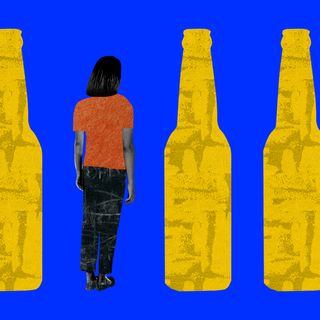
Racism, Discrimination Are ‘Fundamental Drivers’ of Global Health Disparities: Lancet Review
Researchers say the root causes of racism, discrimination and xenophobia must be addressed to tackle global health inequities.

Racism, xenophobia and discrimination are prevalent worldwide and affect several health outcomes across ages, especially for disadvantaged populations. However, these structural issues and their role in driving health inequalities have long been overlooked by health policymakers, researchers and practitioners. In a four-paper series published in The Lancet, researchers suggest that racism, xenophobia and discrimination are in fact “fundamental determinants” of health, and their root causes must be universally recognized as a threat to global public health.
Dr. Sujitha Selvarajah, an author of the series, said, “Discrimination affects health in many ways, which have often been challenging to measure because the effects of discrimination can appear over long periods of time… At a societal level, discrimination is costly and inflicts collective trauma.” The researchers called for these underlying structural causes of health disparities to be the focus of future implementation measures.
Discrimination can be based on several categories such as caste, ethnicity, Indigeneity, migratory status, race, religion, and skin color. The authors noted that while discrimination might stem from different historical contexts specific to a region, and may present in many forms over time, its effects on health remain similar across the world. High mortality rates among Black African, Black Caribbean, Pakistani, and Indian ethnic groups during the second Covid19 wave show how this plays out, as does global vaccine inequality. Scheduled Caste (SC) communities in India are particularly disadvantaged due to government-posed barriers to healthcare, while indigenous populations across the world suffer from lower life expectancy, higher infant and maternal mortality, and malnutrition.
Related on The Swaddle:
Study Shows How Corporate and Political Interests Threaten Public Health
Discrimination may activate the body’s hormone and stress responses, causing short- and long-term biological changes. Discriminatory practices also shape living environments – poor-quality housing, exposure to air pollution, neighbourhood deprivation, violence, and minimal access to green space and nutritious food all become risk factors for poor health outcomes. Further, discrimination also limits access to healthcare as well as opportunities for health improvement through formal education, jobs, and recreation.
The researchers also found that the timing of discrimination exposure affects health. “The effects of discrimination encountered in utero can manifest as poorer developmental outcomes in infancy, and chronic disease during adulthood,” one paper stated. The transitory stage from adolescence to adulthood was also recognized as a period when people are more sensitive to harmful effects of discrimination, as the experience of injustice that might manifest as incarceration, unemployment and poor education can have long-term effects on health.
When it comes to racism, moreover, the issue cannot be looked at in silos. Instead, it requires an intersectional lens to investigate its interaction with other systems of oppression including sexism, ableism and colonialism. “Racism converges with systems of oppression, including those based on age, gender, and socioeconomic status, to exacerbate or mitigate experiences of discrimination. The core problem is an inequality in power, historically rooted but still operating today,” an editorial in The Lancet noted. In the editorial, the authors highlighted a study of over 2 million pregnancies across 20 countries, where neonatal death, stillbirth, and preterm delivery were found to be more likely among babies born to Black, Hispanic, and South Asian women.
In exploring how racism is a globally under-recognised concept in medicine and health, the researchers highlighted that discriminatory ideology has even filtered into science, shaping research and its interpretation. Science and medicine, in turn, have supported the categorization of populations, perpetuating social hierarchies. Take the myth of genetic differences between races which continues to shape health outcomes through research, policy and practice, as noted in the press release. For example, race and ethnicity have been used to score renal function of patients in many countries while diagnosing chronic kidney disease, including in the US and UK. Such a race-based scoring system can fuel racial stereotypes for Black patients. “… the existing evidence suggests that the direct and indirect biological impacts of discrimination are a significant driver of racial health inequities around the world—rather than genetic difference as has often been assumed due to flawed notions of racial difference,” Selvarajah added.
Related on The Swaddle:
The Covid19 Pandemic Highlights How Environmental Racism Has, Will Continue to Hurt the Marginalized
Further, caste, ethnicity and race are considered risk factors for several health conditions, including some cancers and cardiovascular disease. Apart from genetics, researchers have often used socioeconomic factors to explain this higher risk of diseases among minority and disadvantaged groups. However, the authors rejected this explanation in one paper, calling it a “simplistic model” that does not question the root causes responsible for some groups being “systematically less wealthy” than others. Instead, they suggest that health disparities are physiological responses to a complex range of mechanisms caused by past and present discrimination.
One paper noted that confronting these structural drivers of injustice will require anti-racist interventions to be prioritized – such as early education programs that “reduce prejudice towards discriminated groups, improving cultural sensitivity among healthcare providers, and strengthening social security provision.” These include interventions not only at the individual level, but also for organizational and community change through movement-building, legislation, and race equity policies.
As Richard Horton, the editor-in-chief of the Lancet, told The Guardian, “Racism is a health issue… Our structurally racist societies are unsafe for too many communities, families and individuals.” Only reducing the health impacts of racism on individuals and communities then is not enough. The root causes of racism and xenophobia, which continue to focus on maintaining historic power structures, need to be addressed when attempting to tackle health disparities. As Dr. Gideon Lasco of the University of the Philippines said, “Unless we take action to transform the systems that uphold racism and xenophobia, we will be unable to tackle racial health inequities in full, or indeed, the greatest health challenges of our day.”
Ananya Singh is a Senior Staff Writer at TheSwaddle. She has previously worked as a journalist, researcher and copy editor. Her work explores the intersection of environment, gender and health, with a focus on social and climate justice.
Related


How Childhood Experiences Can Influence People’s Drinking Habits
